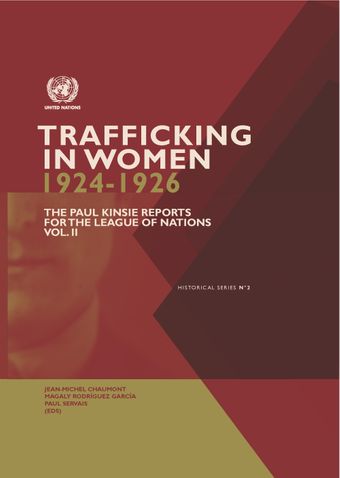Prostitution in Paris

- Author: Susan P. Conner
- Main Title: Trafficking in Women (1924-1926) , pp 172-179
- Publication Date: July 2017
- DOI: https://doi.org/10.18356/8d3b4356-en
- Language: English
Since the early medieval period when Paris was an urban centre and one of the crossroads in Western Europe, prostitution has been part of the fabric of Parisian society. Licensed brothels and bath houses were ubiquitous, although over the years, some restrictions had been placed on them. Except for a brief period of repression in the thirteenth century and again in the late seventeenth century, efforts to suppress prostitution were few. Prostitutes could be harassed, but generally they were viewed sympathetically as pitiful and “fallen” creatures in need of penitentiary reform, “easy women”, or part of the public order. From the end of the reign of Louis XIV until the Revolution nearly a century later, the message remained mixed. Prostitutes who were found in military encampments could have their ears clipped, and the police were given the authority to conduct substantial raids. Prostitution came more and more to be considered as a condition, not yet pathological, or as a state of being. Prostitutes had not yet been defined as a subculture. Rather, poor women passed in and out of the sex trade.
-
From This Site
/content/books/9789210601566s001-c047dcterms_title,dcterms_subject,pub_keyword-contentType:Journal -contentType:Contributor -contentType:Concept -contentType:Institution105


